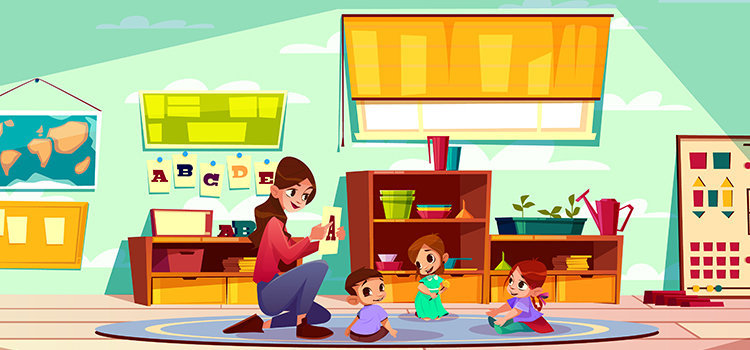Introduction to Education Sector
The field of education is a booming sector, brimming with career opportunities for both teaching and non-teaching positions. With the rise in the use of technology and other modern teaching-learning resources, the demand for individuals with technical skills is increasing in the education sector. Further, recent times have also brought in more funding and governmental support to promote the educational sector.
There are numerous career opportunities in the field of education, which can be based online, in a classroom, in other countries, or even in centers or homes. It also includes opportunities in the area of teaching, finance, administrative, and marketing. Another advantage is that mostly it offers stability, and fixed working hours. Most importantly, teaching is the most reputed and respected profession, because they are entrusted with the responsibility to mold the future citizens of the nation.
Career Opportunities in the Education Sector
The opportunities in the field of education are myriad, dealing with different age groups, different subjects as well as different responsibilities. Here we have tried to summarize 5 of the most common teaching and non-teaching positions:
Teaching Positions

1. Montessori Teacher
A Montessori teacher is more of a guide than a teacher. They allow students to learn through practical experiences and interactions with their environment. This method of teaching focuses on hands-on tasks and provides a specifically tailored classroom environment for the student to explore. Further, it focuses on the child’s desire to gain knowledge. Although Montessori teachers can be found at all levels, early childhood ages are the most likely groups to experience this type of teaching.
Career Path
In order to become a Montessori teacher, one can pursue a certificate, diploma, or postgraduate diploma course. The eligibility of the certificate course is the completion of the 10th, and for the diploma program, one has to complete the 12th. The post-graduate diploma can be pursued after completion of a degree program.
2. School Teacher
A school teacher is mostly specialized in a subject and may teach at the kindergarten, primary, middle, or higher secondary level. They are expected to be patient and pleasant. School teachers aim not only to educate students in their subject but also to support them emotionally and ensure they behave appropriately. Further, they are also often in-charge of conducting and organizing extra-curricular events.
Career Path
The qualifications of a teacher differ based on the level they are teaching, however a minimum of a degree in the relevant subject is needed. For teaching at the primary level, a diploma in teaching (D.Ted) would be the minimum requirement; whereas to teach the secondary level a Bachelor of Education (B.Ed), or a Master’s (M.Ed) for specializations in subjects will be required. Further, to join a government school, one needs to pass the Central Teacher Eligibility Test (CTET).

3. College Professor
College or university professors are subject matter experts, who teach young adults. They not only teach but also guide students in research. They are also in charge of preparing syllabuses, conducting exams, evaluating projects, providing guidance in research and course selections, etc. Certain institutions also expect professors to use online platforms effectively for assignment submissions and tests.
Career Path
One needs to complete a minimum qualification of Master’s in the subject of expertise, to become a professor. Further, one can either take SLET (State Level Eligibility Test) or NET (National Eligibility Test) to become an assistant professor. Some institutions also require the candidates to be a Ph.D. holder in the respective subject.
4. Special Education Teacher
A special educator is one who is trained to teach students who have special needs. These professionals are required to complete individualized educational plans each year for every student as well as work side by side in full inclusion classrooms with regular education students. These teachers modify assignments and enable the student to learn in the way they understand best. However, they need not be regular full-time teachers; they can choose to become a supply teacher and teach at various schools, filling in for permanent staff when they are absent.
Career Path
In order to be a special educator, there are two pathways. One can either opt to pursue a diploma in special education after the 12th or complete B.Ed. in Special Education after a degree course. A M.Ed. in Special Education and Post Graduate Diploma Programme in Early Childhood Special Education/Special Education are also relevant courses.
5. Physical Education Teacher
A physical educator focuses on the physical development and ability of students of all ages. Such a professional is required to teach students basic skills of sports simultaneously ensuring that they are safe. They work with teachers, administrators, and parents to ensure that students lead an active and healthy lifestyle. Some schools and syllabi also offer physical education as part of the curriculum; thereby physical educators are required to set and conducted assessments as well.
Career Path
One can pursue a diploma, certificate, or degree courses to become a physical educator. To join some programs, one may need to appear for entrance exams such as BHU UET, ITM NEST, LPUNEST, MAH B.P.Ed CET, AP PECET, and TS PECET. After the 12th, one can opt to complete a Diploma or Certificate course in Physical Education. Relevant degree programs include Bachelor of Physical Education (B.P.Ed.), B.A. Physical Education, B.A. Yoga, or Master of Physical Education (M.P.Ed.).
Non-Teaching Positions
1. Librarian
A librarian at a school, college, or university level is the key person responsible for the library. They also handle the technology management, scheduling use of the library, and supervision of student helpers in the library. Some additional tasks that may be included for a librarian are to assess reading levels, distribute important information school-wide, and even recommend books that are age-appropriate for a given student or group. Further, they must have an intimate knowledge of how books are categorized and levelled. They may also be asked to conduct sessions on the usage of library resources, appropriate recourses for research as well as referencing styles for students at higher levels.
Career Path
To pursue diploma and certificate courses in library science, one needs to complete 12th. However, one can also opt for degree programs such as Bachelor of Library Science (B.Lib.) and Bachelor of Library Information Science (B.Li.Sc). Further, it can be followed up with a master, M.Phil. Or Ph.D. courses in the same field.
2. Administrator
There are numerous administrative posts in the field of education, including roles such as principals, vice-principals, instructional specialists, coordinators, and more. These professionals are trained to lead teachers and other staff in the daily activities of a school. An administrator is also in charge of evaluating a school’s progress toward goals such as budgeting issues, curriculum issues, or hiring of teachers and staff. Further, they also take care of the institute’s policies and rules, plan the calendar, install the latest technology for learning, and make sure the institute is at a respectable rank.
Career Path
Professionals in this position require a Master's degree or higher and must preferably have a background in education as well. Significant experience as a teacher and/or other administrative experience is also required for these professionals as it will help guide the decision-making process.
3. Counselor
A counselor, at the school, or the college level aims to help students stay on track academically. They also help students to improve personal and social development as well as develop action plans to overcome their problems. The counselor may serve as a sounding board, a referral source, or as guidance in a particular area when needed. They may also conduct training sessions for teachers. There are also guidance counselors or career counselors who are specifically qualified and trained to help students make career-related decisions.
Career Path
In order to become a counselor, one needs to complete a degree in psychology followed by a master’s in relevant specialization like Counselling. In addition to these degrees, certificate and diploma courses in counseling will help one become a counselor. Some of the certificate and diploma courses that are relevant include Guidance and Counseling, Career Counselling, Child Psychology, and School Counselling.
4. Educational Consultant
The role of an educational consultant lies in improving the learning environment of the institution by training the faculty and the administrators. These professionals work with institutes and families to better develop the education system than what is prevalent currently. This role has become significant especially with the advent of the digital era and the changing interests of the students. Educational consultants need to research and suggest the best possible means of learning, where again ed-tech comes into play.
Career Path
A degree in the field of education along with some amount of experience in teaching is required for this profession. Having experience in organizing and conducting extra-curricular activities can also be beneficial.
5. Instructional Designer
An instructional designer is responsible for outlining course content along with interesting activities for the learning process. They are expected to build the best suitable design for the course, keeping in mind its feasibility and effectiveness. The course content can also include online activities and gamification of concepts, with relevance to the upcoming inclusion of technology in education.
Career Path
To be in the field of curriculum development, one requires a degree in education, instructional design, or instructional technology. Having experience in technical design skills will give one an upper hand in this field. Further, having a teaching credential and keeping in touch with the trends in educational technology is also essential in this profession.
Conclusion:
When considering a career in education, the most obvious choice is to become a teacher. Even within the classroom, the subject areas and age groups are so diverse that a variety of options are available. The areas listed above are just a few that can be considered for employment in the education sector.
A career in education sector provides you with lot of stability and security. More importantly, it provides you with a sense of personal fulfilment that will motivate you to keep going. From the beginning, you have the opportunity to make a difference in the world. You have the opportunity to be among those who facilitate the future personalities who the world will look up to someday. And that is undeniably a worthwhile profession to pursue.
If you are ready to begin your career in education and require assistance in understanding the field and exploring various institutions, please contact us at support@margforyou.com.






